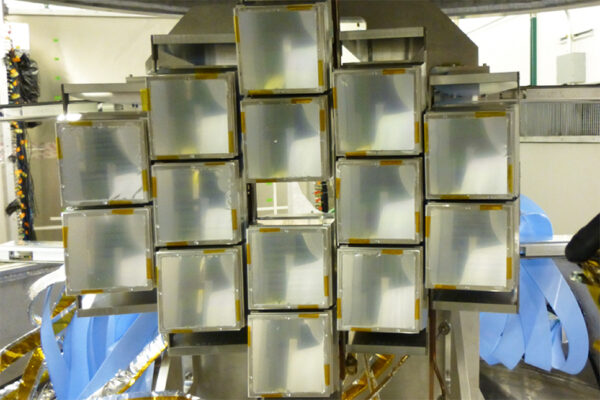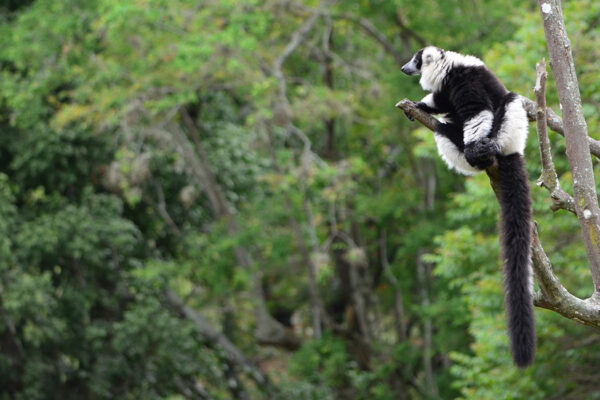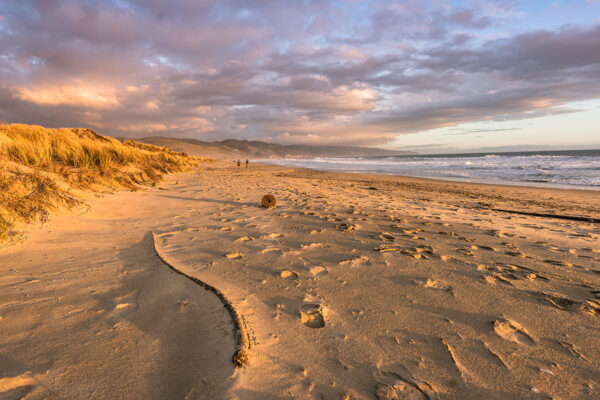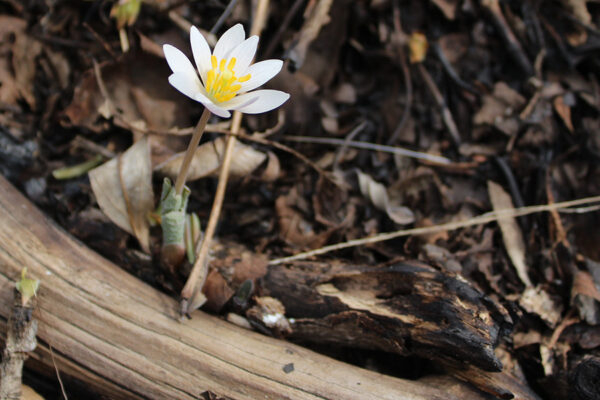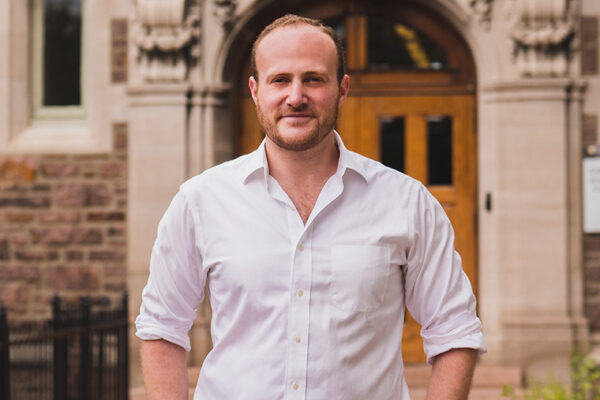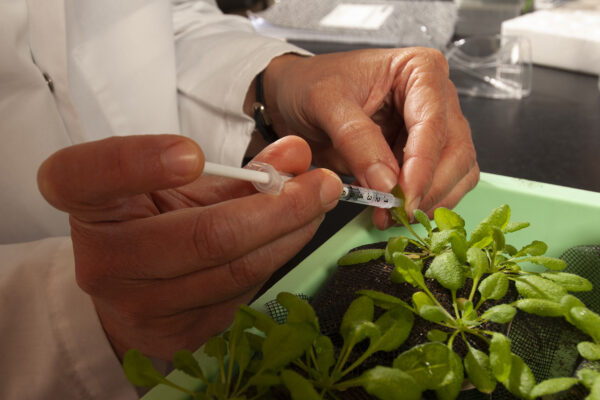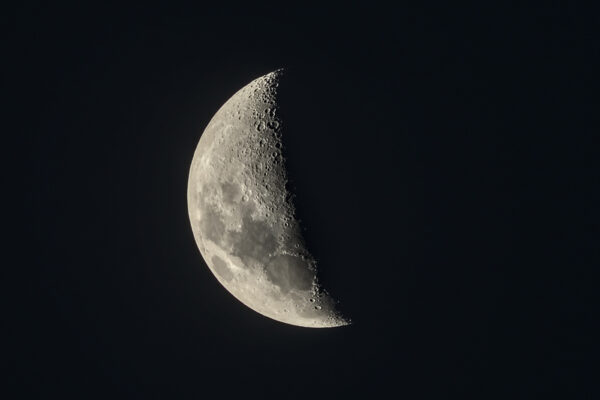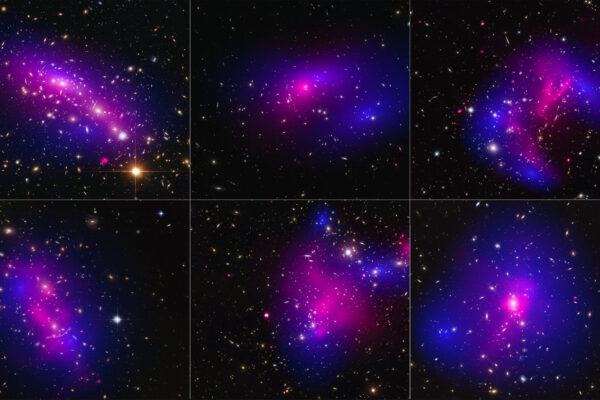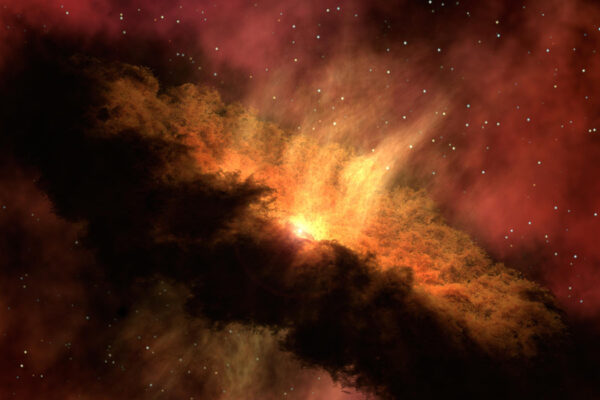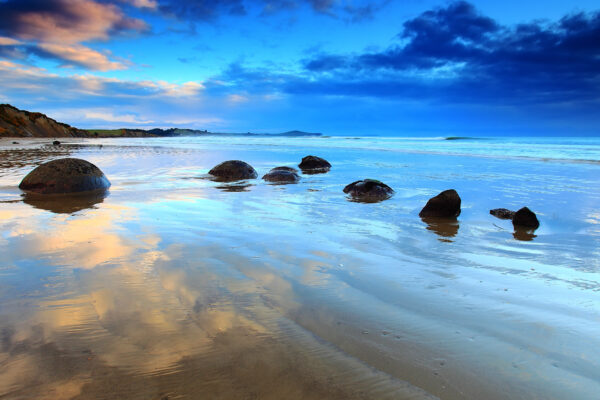Researchers observe new isotope of fluorine
The fluorine isotope is the fifth new isotope that Robert J. Charity, research professor of chemistry in Arts & Sciences, and Lee G. Sobotka, professor of chemistry and of physics, have discovered together. They reported their observations in the journal Physical Review Letters.
A tale of two forests could reveal path forward for saving endangered lemurs
To figure out how to best support two endangered species — black-and-white ruffed lemurs and diademed sifakas — scientists at Washington University in St. Louis are joining up with researchers at the Saint Louis Zoo, Missouri Botanical Garden and Madagascar-based collaborators for an innovative research effort under the Living Earth Collaborative.
Coastal lupine faces specific extinction threat from climate change
Tidestrom’s lupine is a delicate flowering plant that is part of a dune ecosystem along the west coast of the United States. Biologist Eleanor Pardini in Arts & Sciences has tracked Tidestrom’s lupine at the Point Reyes National Seashore in central California for more than 14 years.
Yes, spring flowers are blooming earlier. It might confuse bees.
More species are blooming at the same time than in the past. Matthew Austin, biodiversity postdoctoral fellow with the Living Earth Collaborative, is studying how changes in flower timing affect ecological and evolutionary dynamics of pollination systems.
Mathematician Frankel receives NSF CAREER Award
Steven Frankel, assistant professor of mathematics and statistics in Arts & Sciences, received a CAREER Award from the National Science Foundation for his project “Universal Circles Between Dynamics and Geometry.”
Barbara Kunkel: Prolific researcher, exceptional educator
As professor of biology in Arts & Sciences, Barbara Kunkel has made significant contributions to understanding the strategies plant pathogens use to manipulate their plant hosts. In addition to her research, Kunkel is an exceptional educator, beloved by her students.
How WashU scientists are helping NASA study the moon
An Arts & Sciences research team will help build a rover-mounted drill sensor to quantify the 3D distribution of water at the moon’s south pole. The team includes local St. Louis company Impossible Sensing.
Physicist Freese explores dark side of universe in McDonnell lecture
Katherine Freese, an influential scientist who is at the forefront of efforts to understand the universe as a whole, will present the McDonnell Distinguished Lecture. Her online lecture begins at 7 p.m. Thursday, March 25.
Amari receives Urey Award for career in cosmochemistry
Sachiko Amari, research professor of physics in Arts & Sciences, received the H. C. Urey Award from the European Association of Geochemistry for outstanding contributions advancing geochemistry.
When using pyrite to understand Earth’s ocean and atmosphere: Think local, not global
Scientists have long used information from sediments at the bottom of the ocean to reconstruct conditions in oceans of the past. But a new study from David Fike, professor of Earth and planetary sciences in Arts & Sciences, raises concerns about a common use of pyrite for this purpose.
View More Stories
